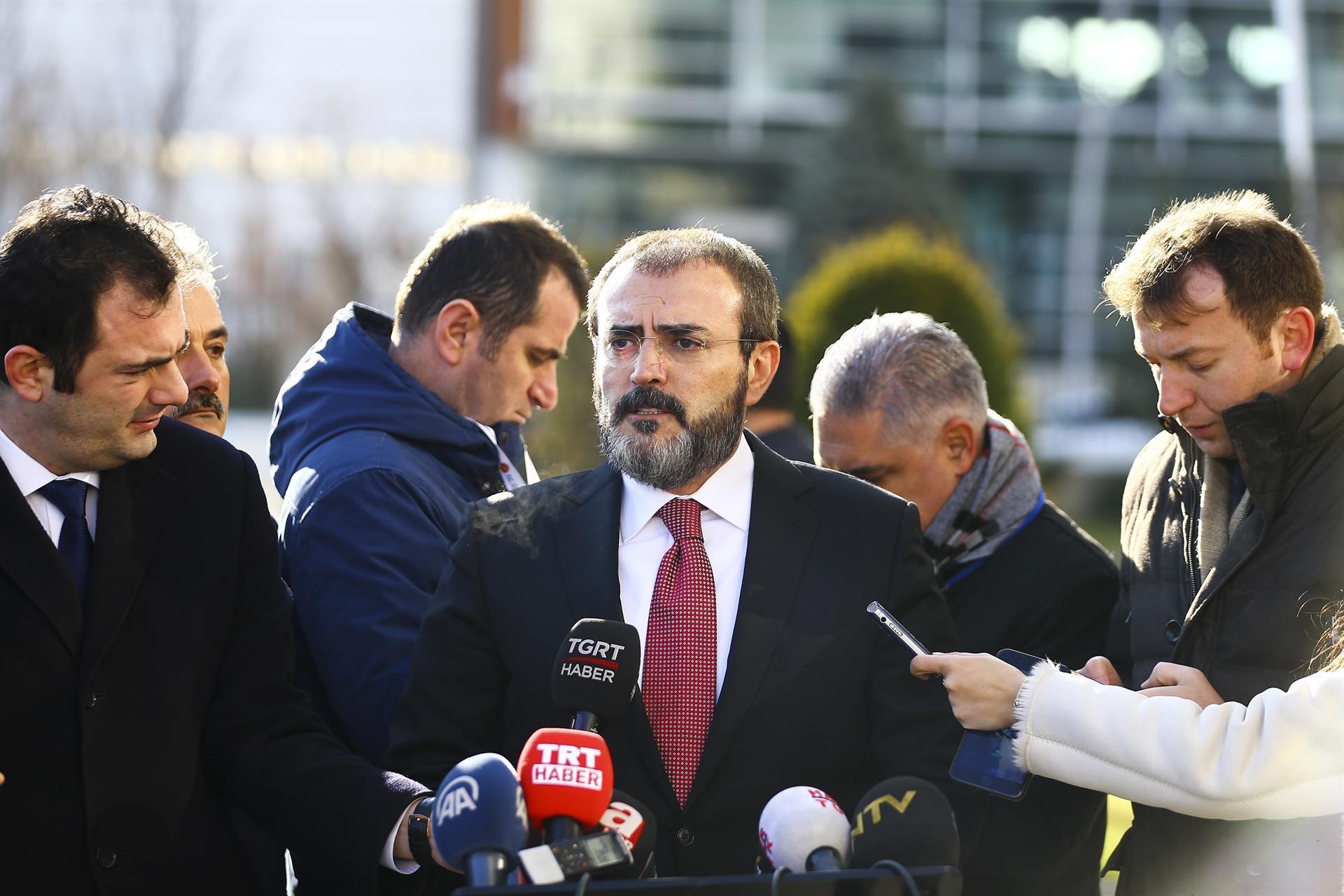
Ruling Justice and Development Party (AKP) spokesperson Mahir Ünal has said U.S. State Department Spokesperson Heather Nauert’s comments on Turkey’s operation in Syria’s Afrin amounted to “confessing” that Washington recognizes the Syrian Kurdish Democratic Union Party (PYD) and the People’s Protection Unit (YPG) as directly linked to the outlawed Kurdistan Workers’ Party (PKK).
“She made this statement without needing a correction. We have voiced the PKK’s activities in Syria for a long time. We have been saying that the U.S. has been arming the PKK under the name of the PYD, the YPG or the Syrian Democratic Forces [SDF]. The State Department’s spokesperson has now admitted it,” Ünal told reporters in Ankara on Jan. 26.
His comments came after Nauert on Jan. 25 referred to the YPG in Syria’s Afrin as “the PKK,” which is recognized as a terrorist organization by the U.S., the EU and much of the Western world.
“Turkey has taken its eye off the ball of ISIS [the Islamic State of Iraq and the Levant - ISIL] and is going after the PKK this time,” Nauert said, referring to Turkey’s ongoing “Operation Olive Branch” in Syria to clear its southern borders of YPG militants.
Ankara has been criticizing the U.S. for supplying arms and weapons to the PYD and the YPG within the scope of the anti-ISIL coalition under the SDF.
The Turkish military launched the operation into the northwestern Syrian district of Afrin on the grounds that the YPG’s presence in the city poses a security threat to Turkey.
Referring to Turkey’s proposition to form a “security zone” in northwest Syria to block such a threat, Ünal blasted the U.S. authorities for giving “different statements” on the issue.
“Turkey called for a security zone in the past. We demanded for this region to be a no-flight zone and a safe zone, especially for refugees. But the U.S. refused it,” Ünal said.
“While the U.S. Secretary of State [Rex Tillerson] was saying ‘there is no such offer,’ the Pentagon mentioned such an offer. Unfortunately, we see that the U.S.’s confusion on the matter is continuing,” he added.
It was reported on Jan. 22, that Tillerson said the United States has told Turkey on a plane to Paris: “Let us see if we can work with you to create the kind of security zone you might need.”
Foreign Minister Mevlüt Çavuşoğlu and Tillerson met in Paris and discussed Turkey’s “Operation Olive Branch” on Jan. 23, but Çavuşoğlu said on Jan. 25 that it would not be right to discuss such a safe zone until trust issues between the two countries are resolved.
“[Tillerson] told me that they were considering establishing a 10 km-deep security zone along the 911-kilometre Turkey-Syria border but they later decided to expand it to 30 km-deep because rockets were fired from Syria within that range,” he said.
In a Davos meeting on Jan. 25, Tillerson was asked whether he had proposed a safe zone to Cavusoglu. “No, we discussed a number of possible options but we didn’t propose anything,” he said.
After this, the Pentagon said it was “in talks with Turkey” about the possibility of creating a security zone.
“Clearly we continue to talk to the Turks about a possibility of a secure zone, whatever you want to call it,” Lieutenant General Kenneth McKenzie, a joint staff director, told reporters on Jan. 25.